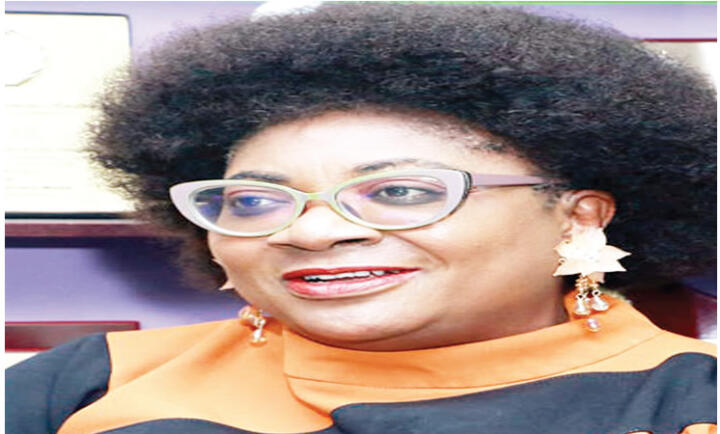In the wake of widespread public criticism over the allocation of N57.6 billion for the procurement of 360 Sport Utility Vehicles (SUVs) for National Assembly members, there is a growing consensus urging the government to explore leasing as a strategic avenue to mitigate the escalating costs of governance amid the country’s revenue challenges. This discourse gains traction as concerns intensify about the judicious use of funds, particularly at a time when the nation is grappling with economic constraints.
Leasing experts contend that the adoption of leasing could offer a viable solution to curbing the substantial capital expenses associated with political officeholders, especially during election cycles. Beyond the contentious SUV procurement, advocates of leasing argue that redirecting funds from capital-intensive purchases to leasing arrangements would not only be more fiscally responsible but also create avenues for increased capital project funding.
As the 2024 budget unfolds, revealing a proposed allocation of N27.5 trillion, with 31.6% dedicated to capital expenditure, 36.1% to recurrent expenditure, and 30% to debt servicing, experts emphasize the need for a paradigm shift. Soji Oloyede, a former Principal Manager with the Leasing Company of Nigeria, asserts that the current system of massive capital outlay every four years is unsustainable. Oloyede envisions that embracing leasing would not only optimize resource allocation but also stimulate economic growth by fostering opportunities for leasing companies, including the provision of cars, drivers, and maintenance services.

Moreover, proponents argue that leasing adoption can play a pivotal role in reducing corruption, a claim substantiated by successful leasing initiatives in government agencies such as the Nigerian Maritime Administration and Safety Agency and the Federal Inland Revenue Service. Despite previous attempts at contract leasing for refineries, there is a renewed call to explore leasing as a comprehensive strategy for diverse asset needs.
Lenin Ugoji, the Group Managing Director/CEO of C&I Leasing Plc, underscores the critical role leasing plays in the Federal Government’s efforts to revitalize the economy through infrastructural development. Recognizing the symbiotic relationship between infrastructure and economic progress, Ugoji affirms C&I Leasing’s commitment to supporting Nigeria’s infrastructure needs.
Against this backdrop, the Equipment Leasing Association of Nigeria organized a conference themed “Propelling Economic Recovery and Growth: The Leasing Initiative” on November 16, 2023, in Lagos. The conference addressed how leasing could be leveraged to stimulate economic growth, with the Chairman of the Board of Directors of ELAN, Mrs. Elizabeth Ehigiamusoe, articulating the challenges facing Nigeria, including insecurity, a depressed economy, and the removal of petroleum subsidies.
Ehigiamusoe underscores the significance of equipment leasing as a financing alternative, noting its unique ability to facilitate access to necessary equipment for productive purposes. Globally, equipment leasing has emerged as a creative financing alternative, generating over $1.5 trillion annually in new leases and contributing about 1.5% to GDP. The ELAN chairperson highlights the diverse benefits of leasing, which spans across businesses of all sizes, governments, and various sectors, citing successful implementations in developing countries such as Egypt, South Africa, Morocco, Algeria, Ghana, and Zambia.
Despite leasing’s historical presence in Nigeria, Ehigiamusoe contends that its full potential remains untapped. Outstanding leases in Nigeria have witnessed a significant growth of 23.2% from N2.58 trillion in 2021 to N3.18 trillion in 2022, contributing over N16.3 trillion to capital formation in the last decade. She urges both the Federal Government and state governments to integrate leasing into their developmental initiatives, especially for the benefit of Micro, Small, and Medium Scale Enterprises (MSMEs) grappling with the high costs of assets.
In conclusion, the evolving discourse on government leasing in Nigeria reflects a broader conversation about optimizing fiscal strategies, fostering economic growth, and ensuring transparent resource utilization. The potential advantages of leasing extend beyond mere cost-cutting, offering a dynamic pathway toward economic resilience and inclusive development in the face of complex fiscal challenges. As stakeholders deliberate on these possibilities, the implementation of leasing initiatives could emerge as a pivotal component of Nigeria’s economic recovery and growth agenda.
Support InfoStride News' Credible Journalism: Only credible journalism can guarantee a fair, accountable and transparent society, including democracy and government. It involves a lot of efforts and money. We need your support. Click here to Donate
